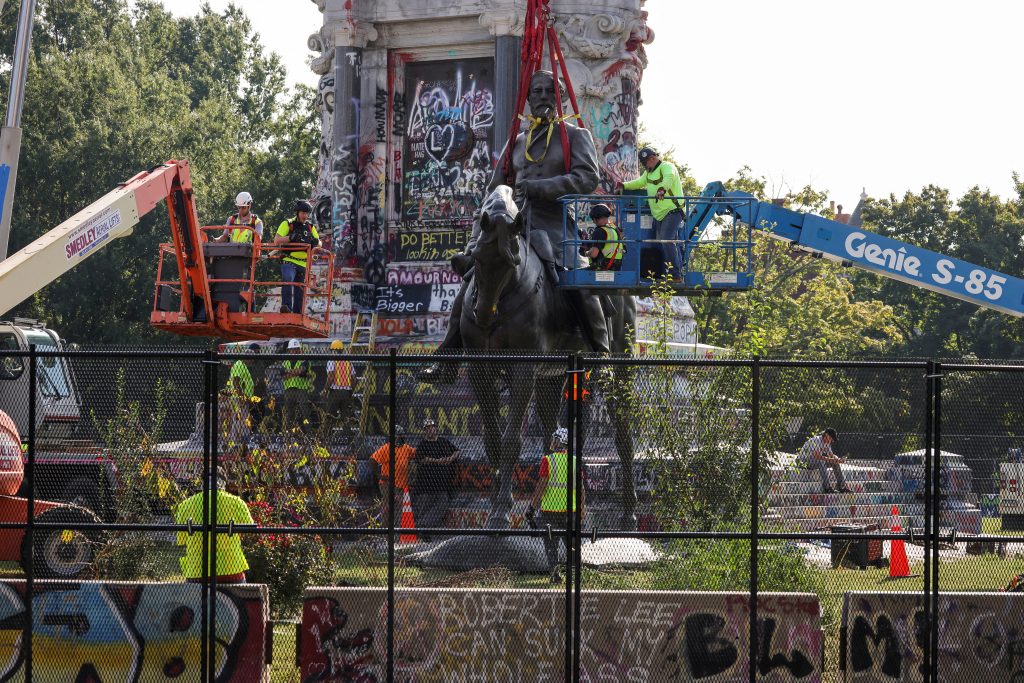By Julio Cesar-Chavez and Dan Fastenberg
RICHMOND, Va. (Reuters) – A year after George Floyd’s murder sparked the toppling of Confederate statues, the United States continues removing segregationist symbols at an unprecedented rate, according to a Southern Poverty Law Center report released on Tuesday.
But the removal of 73 statues, signs and school names in 2021 goes beyond the math, said Lecia Brooks, the center’s chief of staff.
Demand for the destruction of symbols such as those honoring Confederate commander Robert E. Lee shows an awakening to the harm inflicted on the American public by honoring racist figures, racial equality advocates say.
“We’ve seen tremendous movement with respect to the removal of monuments and memorials dedicated to Robert E. Lee,” Brooks said, noting that more shrines honored him nationwide than any other Confederate leader.
“What this tells us is that the public has become educated about these so-called Confederate leaders and are demanding they be removed from public space.”
Teardowns included the removal in September of a Robert E. Lee statue from its base in Virginia’s capital city of Richmond after a year-long legal battle over the monument that was the focus of protests over racial injustice.
In its report “Whose Heritage?”, the center said the May 25, 2020 murder of Floyd, a Black man killed by a white police officer in Minneapolis, sparked a racial reckoning and removal of symbols at 159 sites across the nation.
Teardowns of Confederate symbols in both 2020 and 2021 far outpaced 2019, when just 21 of them were dismantled, the report said.
Removal campaigns, often spearheaded by student groups and local officials, face hurdles in six southern states that created or passed so-called heritage bills to outlaw removal of Confederate symbols, Brooks said.
In Montgomery, Alabama, the City Council in October renamed Jeff Davis Avenue, which honored Confederate states President Jefferson Davis, to Fred D. Gray Avenue in honor of the lawyer for Rosa Parks, a Black woman whose refusal to give up her seat on a segregated bus helped launch the American civil rights movement. The state attorney general’s office is contesting the renaming.
(Writing by Barbara Goldberg in New York; Editing by Richard Chang)

